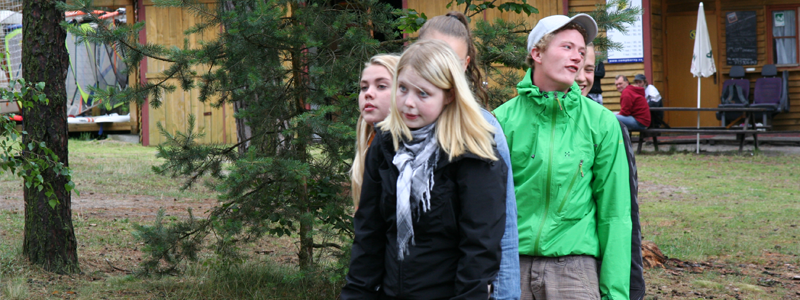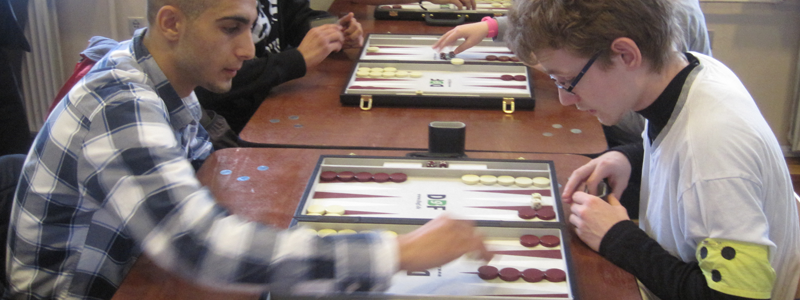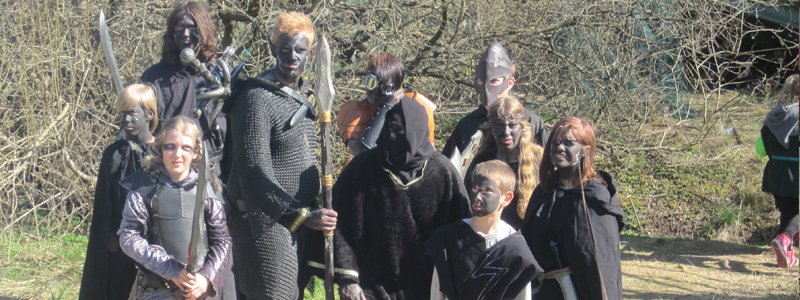|
Topic Introduction
MAPPING THE PROFESSIONAL KNOWLEDGE OF STAFF  What are the expectations and tasks when a child in care enters puberty and becomes a teenager? The first activity is to map the personal knowledge of each staff member about teenage experiences and challenges. Then, to have a dialogue about how these experiences can be used in a professional frame of understanding and working with teenagers in the institution GROUP DIALOGUE 30 minutes Please reflect on these questions by interviewing each other two by two in the staff – one partner interviews the other for fifteen minutes, and then roles are reversed. The interviewer writes notes and gives the paper to the interviewed person after the interview:
MAPPING THE PROFESSIONAL KNOWLEDGE IN THE STAFF GROUP  After the interviews, please write a short summary about each staff member’s personal central experiences as a teenager. Discuss from this both the positive and negative experiences. Then decide on what the group sees as three positive caregiver values when working with teenagers in the institution. Value 1: Our teenagers need…………………………………………………….. (for example: respect and understanding from us even when they behave foolishly) Value 2: Our teenagers need…………………………………………………….. Value 3: Our teenagers need…………………………………………………….. Make these values your professional code for working with teenagers in the institution. |
THE GENERAL DEVELOPMENT AND TASKS WHEN WORKING WITH TEENAGERS
 In general the teen age of a child in public care is like that of other teenagers, but due to the insecure background of earlier life, the teenage period can be very challenging and emotions can become more intense than usually. In this period attachment is reversed into the question about how detachment and separation can happen in a positive way to reach independent adulthood and education. Children who have experienced severe maltreatment or deprivation when they were infants often experience an earlier onset of puberty (this is probably a survival mechanism), some already from age 8-10. Research indicates that intimate relations with caregivers can be an emotional challenge if the young person had a difficult start in life. This is an age where intimacy and closeness can be provoking, and in many cases conflicts can lead to an interruption of the placement: there may be heavy quarrels and conflicts, the young person may run away, isolate himself and herself, refuse to listen or reason, etc. Much depends on the reactions from staff when the young person starts testing limits. In puberty the young person has to form a new and independent self, and will typically shift between childish dependence and trust, and attempts to achieve independence by making a distance towards the staff group. Very often the young person will feel a need for revisiting the biological parents and relatives in order to find out what is illusion and what is reality. A routine visit to see the family again can prevent that the young person has to run away in order to see them. Identifying with the peer group becomes much more important than identifying with the staff group. Issues like “When should I be home in the evening – can I go to this party – can I have holes in my ears?” etc. come up. Studies indicate that young people in public care have severe problems in following peer groups: staff groups are often afraid (and often with good reason) what will happen if they for example allow the young person to go to a party in class. As a result they are often much more restrictive than parents and this becomes a major problem for the young person. There are no easy solutions to these problems, but some professional methods that may be of help. The most important is that you as a staff group show an attitude of kind, calm and firm understanding, and that you all agree on decisions and rules. |
institutions.fairstartedu.us

 English
English






